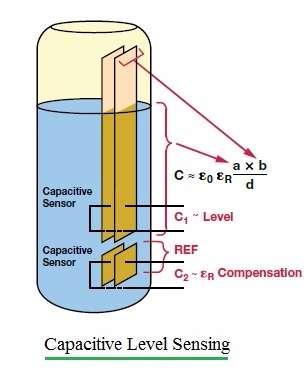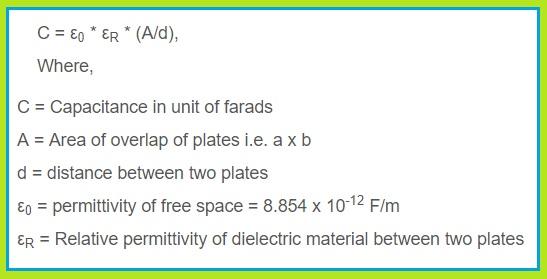Capacitive Sensor: Advantages and Disadvantages
Advertisement
This page explores the advantages and disadvantages of capacitive sensors.
Definition of a Capacitive Sensor: A capacitive sensor is a device that uses capacitive coupling to detect and measure objects. It can detect conductive materials or materials with a dielectric constant different from air. For example, in liquid level sensing, changes in the liquid between two sensors alter the dielectric material, causing a variation in capacitance.

The capacitance of two parallel plates with Area (‘A’) and separated by distance (‘d’) is expressed as follows:

A major application of capacitive sensors is level sensing, as mentioned above.
Advantages of Capacitive Sensors
Following are the advantages of Capacitive sensors :
- It can be used to detect non-metallic targets.
- It can detect through containers of certain types.
- It is simple in construction and adjustable.
- It can detect dense targets and liquids.
- It is lower in cost.
- It has higher sensitivity and can be operational with small magnitudes of force.
- It can be used for the measurement of force, pressure, and humidity.
- It has very good resolution (as low as 0.003 mm) and frequency response.
Disadvantages of Capacitive Sensors
Following are the disadvantages of Capacitive sensors:
- It is very sensitive to changes in environmental conditions such as temperature and humidity. This will affect performance.
- The measurement of capacitance is harder compared to the measurement of resistance.
- Capacitive proximity sensors are not as accurate compared to inductive sensor types.
Advertisement
 RF
RF







